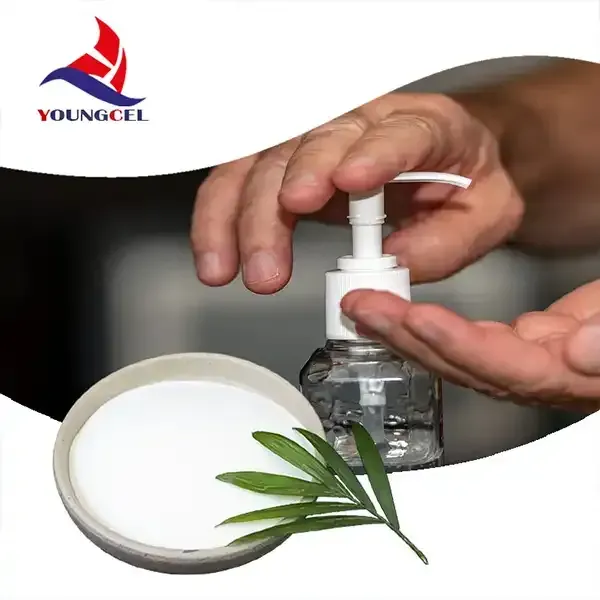Exploring the Significance of Cellulose Ether HPMC in Various Industries
Hydroxypropyl Methylcellulose (HPMC) is a versatile and extensively used cellulose ether that has found its place in diverse industries due to its unique functional properties. As a water-soluble polymer derived from cellulose, HPMC is primarily utilized in construction, pharmaceuticals, food, and personal care products, among others. This article delves into the significance of HPMC, its properties, applications, and the benefits it offers across these fields.
Properties of HPMC
HPMC is characterized by its ability to form a gel when mixed with water, resulting in a thick, viscous solution. This property makes it an excellent thickening agent. The degree of substitution, which indicates the extent to which hydroxyl groups in cellulose are replaced by hydroxypropyl and methyl groups, influences the solubility and viscosity of HPMC. Its chemical structure provides it with thermal stability, high film-forming ability, and excellent adhesive properties. This makes HPMC a highly adaptable ingredient in various formulations.
Applications in the Construction Industry
In the construction sector, HPMC is primarily used in tile adhesives, cement-based renders, and dry-mix mortars. Its water retention properties prevent premature drying of cement and gypsum, ensuring proper curing and enhancing the final strength of the product. HPMC also improves the workability of mortars, allowing for easier application while enhancing adhesion between different substrates. The use of HPMC in construction leads to improved durability, reduced cracking, and increased flexibility of materials.
Role in Pharmaceuticals
HPMC has a significant presence in the pharmaceutical industry, serving multiple roles in drug formulation. It is commonly used as a binder in tablets and as a coating agent due to its ability to form a smooth and consistent film. Additionally, HPMC acts as a controlled-release agent, regulating the release of active pharmaceutical ingredients (APIs) and improving bioavailability. Its biocompatibility and non-toxicity make HPMC a favored choice for pharmaceutical applications, ensuring safety and efficacy in drug delivery systems.
cellulose ether hpmc

Food Industry Applications
In the food industry, HPMC is employed as a food additive, primarily for its thickening and emulsifying properties. It is used in various products including sauces, dressings, and frozen foods, where it helps maintain texture and extend shelf life. HPMC can also enhance the mouthfeel of food products and plays a role in gluten-free formulations by providing stability and improving the overall sensory experience. The food-grade HPMC is favored due to its safety for consumption and its ability to improve food quality.
Personal Care and Cosmetic Products
The personal care and cosmetic industry also benefit from the unique properties of HPMC. It is commonly found in lotions, creams, and shampoos, where it serves as a thickener and stabilizer, enhancing texture and viscosity. HPMC also acts as a film-forming agent, providing sheen and a pleasant feel to products. Its water retention capabilities also contribute to moisturizing formulas, making it a popular ingredient in skincare products.
Environmental Considerations
As the world becomes more environmentally conscious, the demand for sustainable and biodegradable ingredients has surged. HPMC, being a cellulose derivative, is derived from renewable resources, making it a more environmentally friendly option compared to synthetic thickeners and emulsifiers. Its biodegradability aligns with the growing preference for sustainable products, providing a green alternative in various applications.
Conclusion
The versatility of Hydroxypropyl Methylcellulose (HPMC) makes it an invaluable component across several industries. Its unique properties, including water solubility, viscosity enhancement, and film-forming abilities, pave the way for its wide-ranging applications. From ensuring the strength and durability of construction materials to enhancing the efficacy of pharmaceuticals and food products, HPMC plays a crucial role. As industries continue to evolve and focus on sustainability, HPMC's biodegradable nature and environmental benefits position it as a crucial ingredient in the formulation of future products. The continued research and development of HPMC formulations will undoubtedly lead to innovative applications and enhancements across various sectors.
-
Rdp Powder: Key Considerations for Wholesalers in the Building Materials IndustryNewsJul.08,2025
-
Key Considerations for Wholesalers: Navigating the World of Hpmc - Based ProductsNewsJul.08,2025
-
Hpmc Detergent: Key Considerations for WholesalersNewsJul.08,2025
-
Key Considerations for Wholesalers: China Hpmc For Tile Adhesive, Coating Additives, Concrete Additives, and MoreNewsJul.08,2025
-
Crucial Considerations for Wholesalers: Navigating the World of Construction MaterialsNewsJul.08,2025
-
Key Considerations for Wholesalers Sourcing Additive For Cement, Additive For Concrete, Additive For Putty from Additive Manufacturer Shijiazhuang Gaocheng District Yongfeng Cellulose Co., Ltd.NewsJul.08,2025




